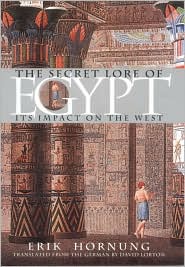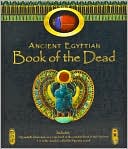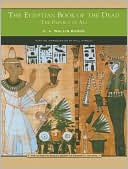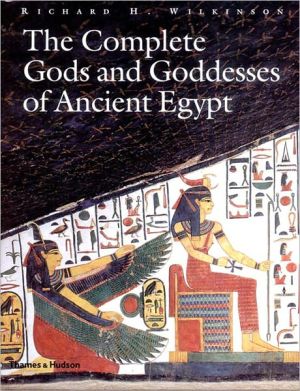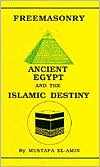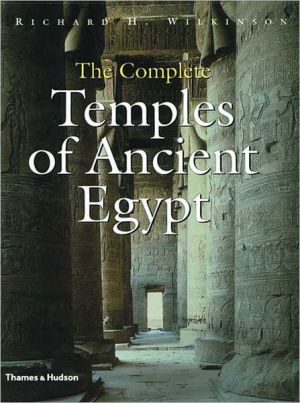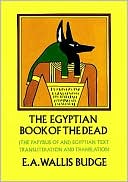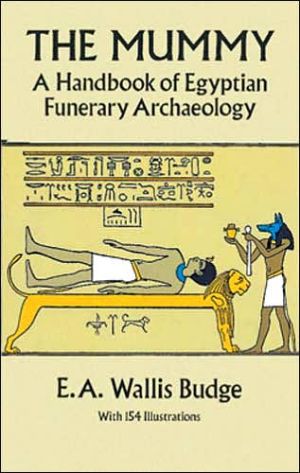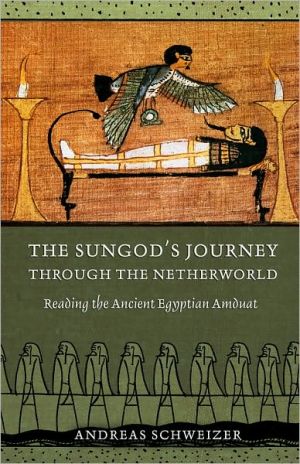The Secret Lore of Egypt: Its Impact on the West
Alchemy, astrology, and other secret sciences have Egyptian roots, and films, popular fiction, and comic books frequently draw upon Egyptian themes. Rosicrucianism, Mormonism, and Afrocentrism all share Egyptian-derived elements. Modern-day esoteric endeavors find an endlessly renewable intellectual reservoir in ancient Egyptian culture, Erik Hornung believes, and are almost inconceivable without Egypt. Although such persistence assures Egyptosophical ideas an extraordinarily widespread...
Search in google:
Alchemy, astrology, and other secret sciences have Egyptian roots, and films, popular fiction, and comic books frequently draw upon Egyptian themes. Rosicrucianism, Mormonism, and Afrocentrism all share Egyptian-derived elements. Modern-day esoteric endeavors find an endlessly renewable intellectual reservoir in ancient Egyptian culture, Erik Hornung believes, and are almost inconceivable without Egypt. Although such persistence assures Egyptosophical ideas an extraordinarily widespread influence, the field of Egyptology has largely overlooked this diffusion of ideas. In The Secret Lore of Egypt, Hornung traces the influence of the esoteric image of Egypt, especially as it is manifested by the god Thoth, on European intellectual history since antiquity and finds it reasserted even today in the United States. From Gnostic writings and Romantic poetry to Freemasonry and the Theosophist movement, Egyptian deities reemerge in ever-surprising guises. Since ancient times, Egypt has been associated with esoteric practices and beliefs and regarded as the source of all secret knowledge -- an association that, Hornung says, is only loosely connected with historical reality. Library Journal The author of four previous Cornell University Press volumes on Egyptology, Hornung (emeritus, Univ. of Basel) here focuses on "Egyptosophy." This concept is defined as "the study of an imaginary Egypt viewed as the profound source of all esoteric lore. This Egypt is a timeless idea bearing only a loose relationship to the historical reality." Hornung traces the influences of this imaginary Egypt on Western culture from the classical world, through the Middle Ages and the Renaissance, to the present day. He argues that the god Thoth and various Egyptian sages known to the ancient Greeks coalesced into the legendary Hermes Trismegistus, the creator of the art of writing and civilization. Hornung views these mystical and magical "Egyptian" elements as a basis for Gnosticism as well as other secret and metaphysical societies, among them the Rosicrucians, the Freemasons, and the Theosophists. The text presumes extensive knowledge of Western philosophy, art history, and religion; references are made to "the Madonna Platytera" and the "Gnostic Pistis Sophia," for example, without any footnotes or explanations. Recommended for academic libraries and specialized collections. (Illustrations and index not seen.) Edward K. Werner, St. Lucie Cty. Lib. Syst., Ft. Pierce, FL Copyright 2001 Cahners Business Information.
Translator's NoteIntroduction11The Ancient Roots of the "Other" Egypt52Foreign Wonderland on the Nile: The Greek Writers193Power and Influence of the Stars264Alchemy: The Art of Transformation345Gnosis: Creation as Flaw436Hermetism: Thoth as Hermes Trismegistus487Egypt of the Magical Arts558The Spread of Egyptian Cults: Isis and Osiris649Medieval Traditions7310The Renaissance of Hermetism and Hieroglyphs8311Travels to Egypt: Wonder upon Wonder9212Triumphs of Erudition: Kircher, Spencer, and Cudworth9813"Reformation of the Whole Wide World": The Rosicrucians10614The Ideal of a Fraternity: The Freemasons11615Goethe and Romanticism: "Thinking Hieroglyphically"12816Theosophy and Anthroposophy14117Pyramids, Sphinx, Mummies: A Curse on the Pharaohs15518Egypt a la Mode: Modern Egyptosophy and Afrocentrism17319Outlook: Egypt as Hope and Alternative189Chronology203Glossary207Bibliography209Index221
\ From the Publisher"Erik Hornung has rare and perhaps unique advantages for tackling an important and overdue task, namely that of revalorizing the spiritual heritage of Egypt while at the same time describing fairly and rigorously the image of that country in the West...Esoteric Egypt is written with vigour and in the author's typically enthusiastic, pellucid style. And how enlivening it is to be reminded that there are colleagues whose learning is broad enough to include familiarity with the Qabalah, the Tabula Smaragdina, and the philosophy of Herder...Congratulations, then, to Professor Hornung for having produced a scholarly, original, and entertaining work, which covers a vast amount of ground with an astonishingly light touch. Those who know the subject of Egyptian survivals will be further enlightened by this volume."-Terence DuQuesne, Discussions in Egyptology\ "Hornung traces the influences of this imaginary Egypt on Western culture from the classical world, through the Middle Ages and the Renaissance, to the present day. . . . Recommended for academic libraries and specialized collections."-Library Journal, September 2001\ "Erik Hornung has rare and perhaps unique advantages for tackling an important and overdue task, namely that of revalorizing the spiritual heritage of Egypt while at the same time describing fairly and rigorously the image of that country in the West. . . This book is written with vigor and in the author's typically enthusiastic, pellucid style. And how enlivening it is to be reminded that there are colleagues whose learning is broad enough to include familiarity with the Qabalah, the Tabula Smaragdina, and the philosophy of Herder. . . . Congratulations, then, to Professor Hornung for having produced a scholarly, original, and entertaining work, which covers a vast amount of ground with an astonishingly light touch. Those who know the subject of Egyptian survivals will be further enlightened by this volume."-Terence DuQuesne, Discussions in Egyptology\ "Hornung traces Western preoccupation with ancient Egypt as an epitome of the mysterious 'other,' the source of lost or esoteric wisdom, the original font of human knowledge. . . . He concludes with provocative points about the general curricular neglect of Egyptology, yet he also muses on the potential value of a reformed 'Hermetism' in a world crying for reconciliation. . . . Great reading for those with the necessary background. All levels and collections."-Choice, September 2002, Vol. 40, No. 1\ "The book makes for delightful reading, even though (or, perhaps, because) one cannot be but utterly amazed about the degree of gullibility through the centuries as far as the secret wisdom of ancient Egypt is concerned. . . . On the whole this is a very instructive and charming book that deserves a wide readership."-Pieter W. van der Horst, UItrecht University. Bryn Mawr Classical Review 2002.04.18\ "I recommend this well-written volume to anyone seriously interested in what Egypt ever meant and presently means to the whole world."-Anthony Spalinger, University of Auckland, Electronic Antiquity 7:1, February 2003\ "Hornung's Secret Lore is . . . enjoyable, dealing with what he calls Egyptosophy, the notion that ancient Egypt is the source of all wisdom and that conventional Egyptology has misunderstood many aspects of this culture."-Antiquity 76 (2002)\ \ \ \ \ \ Library JournalThe author of four previous Cornell University Press volumes on Egyptology, Hornung (emeritus, Univ. of Basel) here focuses on "Egyptosophy." This concept is defined as "the study of an imaginary Egypt viewed as the profound source of all esoteric lore. This Egypt is a timeless idea bearing only a loose relationship to the historical reality." Hornung traces the influences of this imaginary Egypt on Western culture from the classical world, through the Middle Ages and the Renaissance, to the present day. He argues that the god Thoth and various Egyptian sages known to the ancient Greeks coalesced into the legendary Hermes Trismegistus, the creator of the art of writing and civilization. Hornung views these mystical and magical "Egyptian" elements as a basis for Gnosticism as well as other secret and metaphysical societies, among them the Rosicrucians, the Freemasons, and the Theosophists. The text presumes extensive knowledge of Western philosophy, art history, and religion; references are made to "the Madonna Platytera" and the "Gnostic Pistis Sophia," for example, without any footnotes or explanations. Recommended for academic libraries and specialized collections. (Illustrations and index not seen.) Edward K. Werner, St. Lucie Cty. Lib. Syst., Ft. Pierce, FL Copyright 2001 Cahners Business Information.\ \ \ From The CriticsThe study of Egypt as the fount of all wisdom and stronghold of hermetic lore, already strong in antiquity, Hornung (Egyptology, U. of Basel) calls Egyptosophy. Though it was soundly rebuffed by Egyptology, based on conventional science and history, he thinks its continuing impact on western culture deserves scholarly attention. He reviews the various occult traditions and their expression during various eras. The original was published by C. H. Beck'sche Verlagsbuchhandlung, Munich, in 1999, and translated by David Lorton, who has also translated Hornung's earlier books for Cornell. Annotation c. Book News, Inc., Portland, OR (booknews.com)\ \
